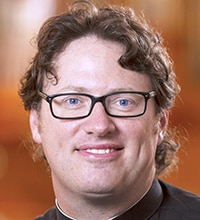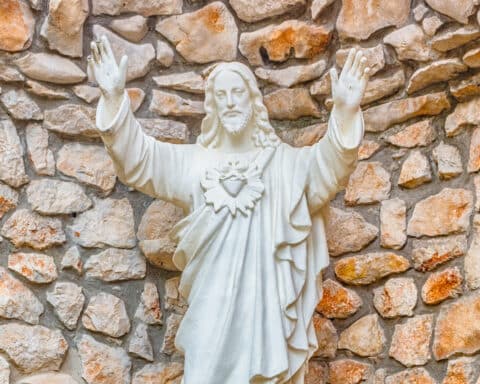
I’ve always likened it to the wonder philosophers talk about. To feel simultaneously the world’s grandeur and our smallness, to be humbled, to see ourselves — however small — part of it, alongside the awe of it, that is, the wisdom of it, there is also this feeling of thanks. Again, it’s difficult to describe exactly, but I think you know what I mean. I’m talking about what we sometimes feel when we turn off our devices, go out of the city, away from the noise; what we see and feel under the stars, when the sun rises, when it sets — that beauty. That’s what I mean — wonder and gratitude.
| October 9 – 28th Sunday in Ordinary Time |
|---|
|
2 Kgs 5:14-17 |
Now the thing is, these are spiritual experiences, religious too. Such is the repeating echo (too many to cite) of our Hebrew ancestors, our Jewish brothers and sisters: to give thanks to the Lord, for he is good. God creates. God redeems. The Scripture reveals to us the reason for our awed and thankful instincts. It’s that when God created everything, he gazed upon it and saw it was good (cf. Gn 1:31). With our awe and thankfulness, we share in that same thing: in God’s contemplation of creation. That is, when we experience wondrous thanks, we do what God does when he rejoices in creation. And it becomes a symphony of joy, so to speak — the music of God’s joy and ours.
Which is the simple point I’m struggling to make. I could’ve just come out and said it, but I want you to feel what I’m saying: Wonder brings us close to the truth of creation, and gratitude brings us very near to God. That is, the experiences of wonder and thankfulness bring us nearer to the original perspective of Eden, giving us the eyes we lost in the Fall. This is true of each act of wonder and thanksgiving, the smallest to the most sublime. When we’re wondrously thankful, it’s like the beginning of redemption, the experience of it — eternal festivity, the laughter of heaven.
But it’s also the beginning of knowledge. Thanksgiving invites us to know God. At least, that was Naaman’s experience. “Now I know that there is no God in all the earth, except in Israel,” he discovered, thankful to be healed (2 Kgs 5:15). It was also the invitation that the Samaritan accepted. Healed as the others were, in thanksgiving the Samaritan turned toward Christ. For him, healing caused thanksgiving, and thanksgiving opened the door to Christ — thanksgiving became knowledge.
And here we’ve come suddenly to the very plot of the Gospel, the unique story of Christianity. We are naturally wonderers; we’re naturally thankful creatures. But these things that are true about us ultimately lead us to God in Christ. All our moments of wonder and thanksgiving point to Christ. They are not just fleeting experiences of the brain, they’re the natural invitations of God. And we should cherish them as such.
This brings me to my last simple point, again struggling to say it well. And that is, to note all that for which we should be grateful is not trite emotional work. Rather, it prepares us to meet God, to see Christ. There is a reason, for example, the source and summit of our faith is called “thanksgiving”; because it whispers perhaps the deepest truth there is to know, and that’s when we discover in faith the reason for our gratitude, we enter its communion.
Which is, of course, redemption, the beginning of heaven, that final joining only of the thankful with God who is all in all (1 Cor 15:28). Which is what Naaman began to experience, that Samaritan too. And what you can experience, as well when you finally experience the Mass as that deeper thanksgiving, the beginning of eternal praise — singing Sanctus with angels and archangels.
Father Joshua J. Whitfield is pastor of St. Rita Catholic Community in Dallas and author of “The Crisis of Bad Preaching” (Ave Maria Press, $17.95) and other books.





